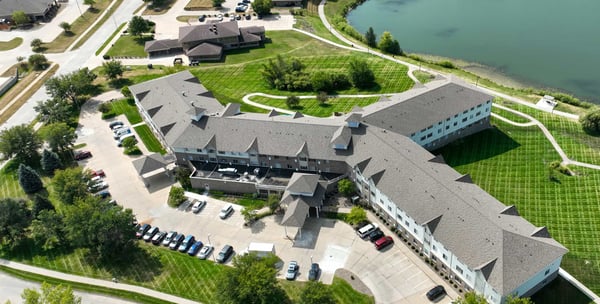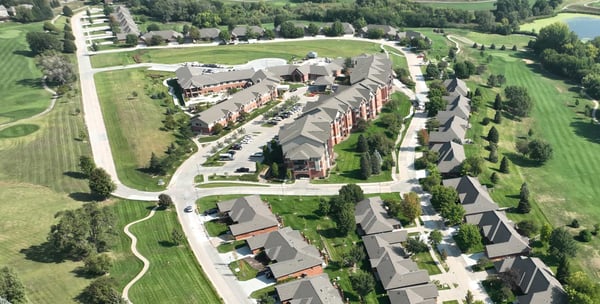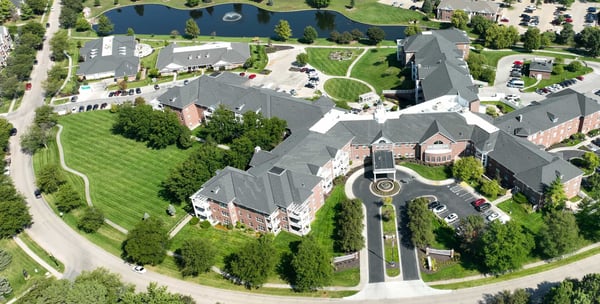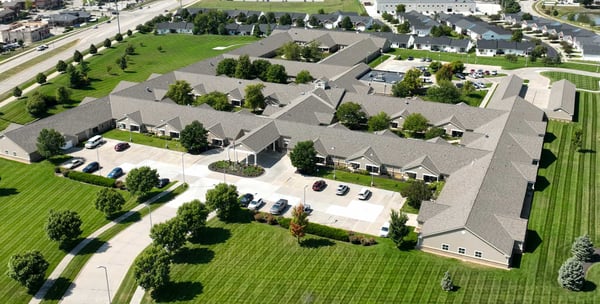
Memory Support
Ensuring safety through tailored care
In the face of dementia and Alzheimer's, ensuring your loved one is safe and has the best support is paramount. Explore our compassionate and expert memory support, designed to nurture and safeguard every cherished memory.

Overview
Guiding your loved one through memory support
Memory loss doesn't define your loved one. We're here to provide a comforting environment where they can flourish, be understood, and continue to make meaningful memories.
- Care is anchored by our certified dementia experts
- Digital avenues like LifeLoop keep families connected
- Regular updates and open channels with our compassionate staff
Benefits
A closer look at memory support
Memory support is more than just a service; it's a promise to uphold every resident's dignity, safety, and wellness. Explore the distinctive advantages that shape our approach, making it a top choice for many families like yours.
Safe and secure environment
Memory support communities often have secure environments with measures in place to prevent wandering and ensure the safety of residents. This can offer peace of mind to both residents and their families.
Enhanced quality of life
Memory support programs aim to improve the overall quality of life for individuals with memory impairments. By providing specialized care and assistance, they can help individuals maintain their dignity, independence, and well-being.
Specialized care
Memory support services are tailored to the unique needs of individuals with memory issues. Staff members are trained to provide the right level of care, including assistance with daily activities, medication management, and cognitive stimulation.
Social engagement
Memory support programs encourage social interaction among residents. Engaging in group activities and events can help individuals maintain social connections, reduce feelings of isolation, and stimulate cognitive functions.
Cognitive stimulation
Many memory support programs include activities and therapies designed to stimulate cognitive functions and slow the progression of memory loss. These can include memory games, art therapy, music therapy, and more.
Relief for caregivers
Memory support can provide much-needed relief for family caregivers who may be struggling to provide 24/7 care for their loved ones with memory issues. These services allow caregivers to take breaks and manage their own well-being.
Locations
Memory support across Immanuel: Find your perfect fit
As you journey through the challenging path of finding the right memory support community, let us show you the array of options Immanuel offers. Our communities are not just about care; they're about holistic well-being, comfort, and connection. Dive in to find the perfect match.
Frequently Asked Questions
Understanding the essentials memory support
Your peace of mind is paramount as you navigate memory care choices. We've curated and answered common questions about Immanuel’s memory support services, aiming to shed light on your or your loved one's path and empower the decision-making process.
-
A memory support community is a specialized senior living environment designed for individuals with memory-related issues, such as Alzheimer's and dementia. It offers tailored care and support to meet their unique needs.
-
Signs may include memory loss, confusion, difficulty with daily tasks, wandering, and personality changes. Consulting a healthcare professional for a diagnosis and assessment is advisable.
-
Memory support communities typically offer assistance with activities of daily living, medication management, secure environments to prevent wandering, cognitive stimulation programs, and social engagement activities.
-
Amenities can vary, but you can expect communal dining areas, secured outdoor spaces, and common areas for social interaction, therapy, and activities. Some may also have fitness centers, libraries, and more.
-
Ask about staff training and qualifications. Team members in memory support communities are typically trained in dementia care, communication techniques, and strategies for managing challenging behaviors.
-
Depending on your location and circumstances, financial assistance options like Medicaid or veterans' benefits may be available. It's important to explore these possibilities.
-
Contact the communities you're interested in to schedule tours. During your visit, observe the staff-to-resident ratio, interaction among residents, and the overall environment to assess whether it's a good fit for your loved one.







